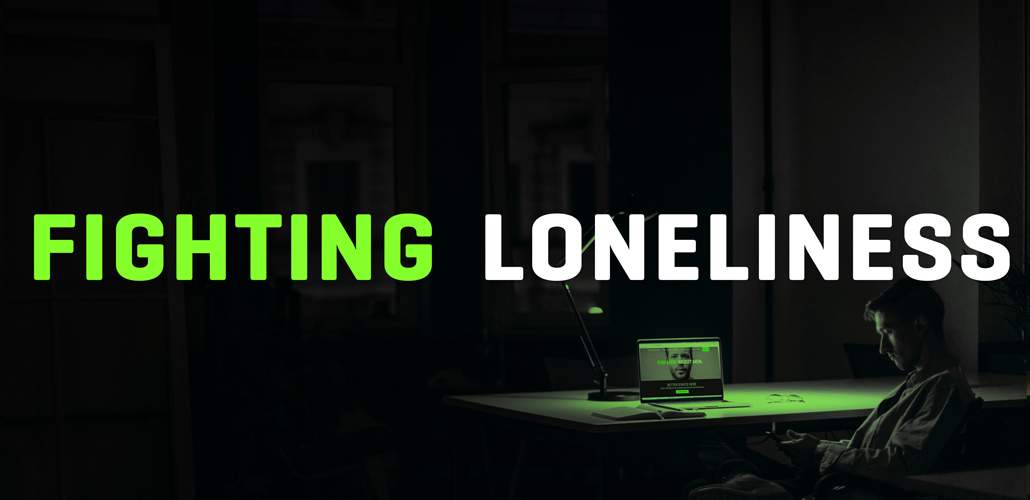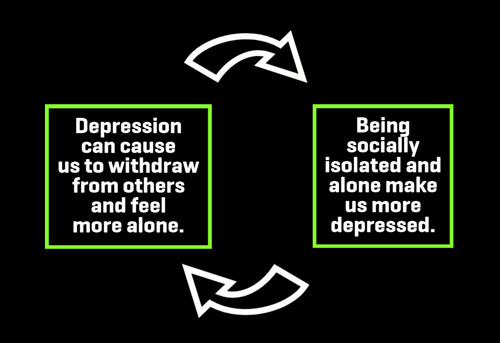
We're Stronger Together
Loneliness may not be something we often talk about, but it affects a lot more of us than we tend to acknowledge. Get tips to help yourself or a friend.

Loneliness may not be something we often talk about, but it affects a lot more of us than we tend to acknowledge. Get tips to help yourself or a friend.
“Feeling lonely means wanting deeper and more meaningful connections in your life - something we all deserve.”
 With everyone physically distancing because of COVID-19, many of our social activities have been restricted. The resulting social isolation has left many people feeling lonely. It’s important to remember though, that feeling connected is more than having lots of people around you – you can have a partner, a family, and lots of friends, but still feel alone.
With everyone physically distancing because of COVID-19, many of our social activities have been restricted. The resulting social isolation has left many people feeling lonely. It’s important to remember though, that feeling connected is more than having lots of people around you – you can have a partner, a family, and lots of friends, but still feel alone.
Loneliness may not be something we often talk about, but it affects a lot more of us than we tend to acknowledge, as evidenced by our own Stress Test results.
Guys are often reluctant to talk about their mental health and emotions, but it seems loneliness is even more relegated to the sidelines. Loneliness is a normal feeling – humans are social beings with a fundamental need to be with others, and without connection to others, we feel lonely. The need for connection brings us together and helps us form the necessary bonds to strengthen ourselves and our communities.
Being lonely doesn’t mean you are less of a man, or weak, or that there is something wrong with you – far from it. Feeling lonely simply means you want deeper and more meaningful connections in your life – something we all deserve.
Loneliness often overlaps with depression and the two can quickly feed into each other – depression typically causes us to withdraw from others and become more socially isolated, and being socially isolated makes us feel more depressed. During COVID-19 this is especially easy to do, so let’s make sure we continue to connect with the people we care about and meet others to expand our social networks.
Loneliness is widely spread – chances are if you aren’t dealing with loneliness yourself, you likely know someone who is. Loneliness isn’t something to push aside and deal with later, as it has some pretty serious negative consequences for your mental and physical health.
Talking about loneliness does not mean you are weak or flawed.
We all feel alone sometimes and ignoring or pushing it aside to deal with later does not help.
When loneliness is left unaddressed it can have serious health effects.
Research has shown that loneliness can be as bad for you as smoking and obesity. [1]
Staying socially connected can significantly improve your health.
Feeling connected to others alters our stress hormones, while making plans with others keeps us more engaged.
Loneliness is a signal that you need more meaningful connections in your life.
Use feelings of loneliness to motivate you to reach out and connect with others.
Loneliness can have many causes, such as:
It’s especially important to be aware of how you are feeling in these instances and take extra steps to prevent loneliness.

Tips to help you fight loneliness and build more meaningful connections in your life.

Ways to tell if your friend may be dealing with loneliness, and what you can do to help.
Connect with us on social, as we share tips about how to fight loneliness all month:
Related Articles:
References:
[1] Isolation and Loneliness: An Overview of the Literature (PDF), 2016, British Red Cross